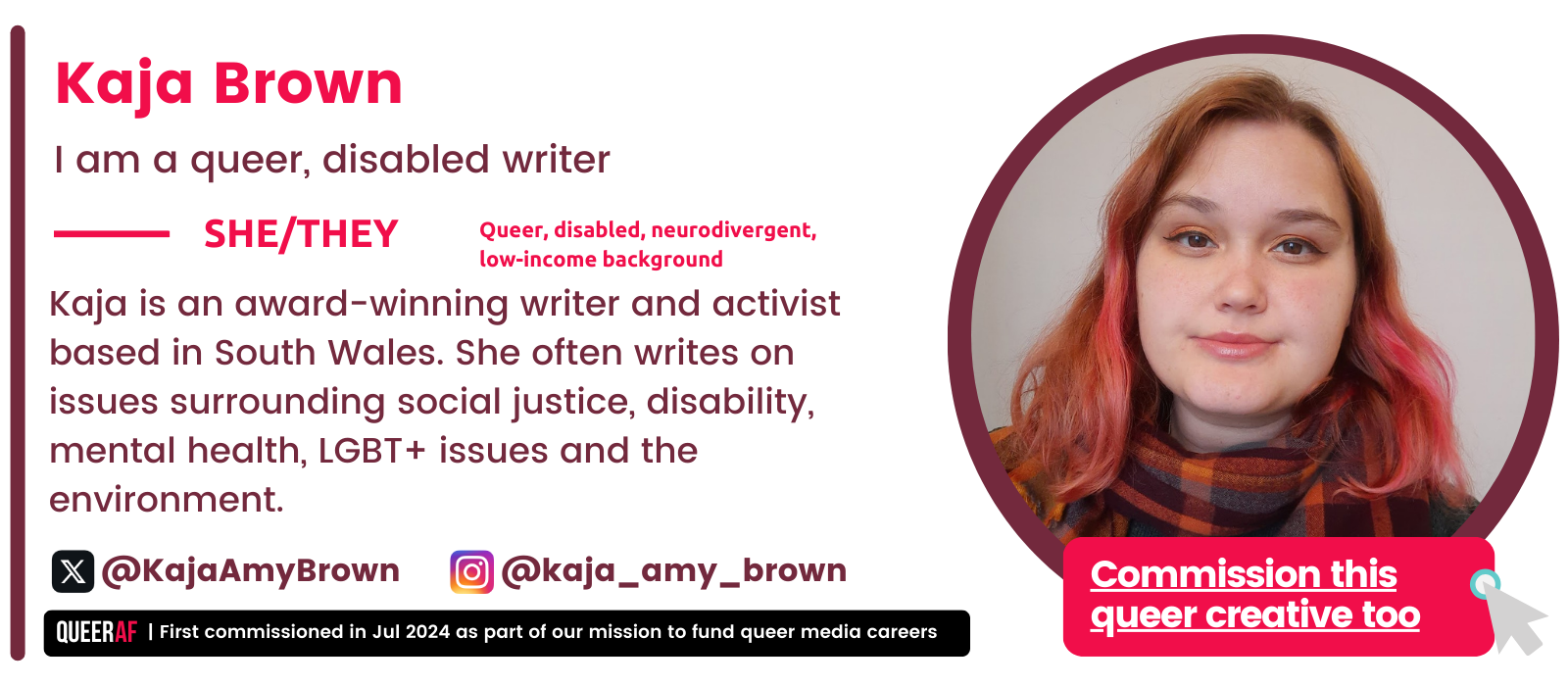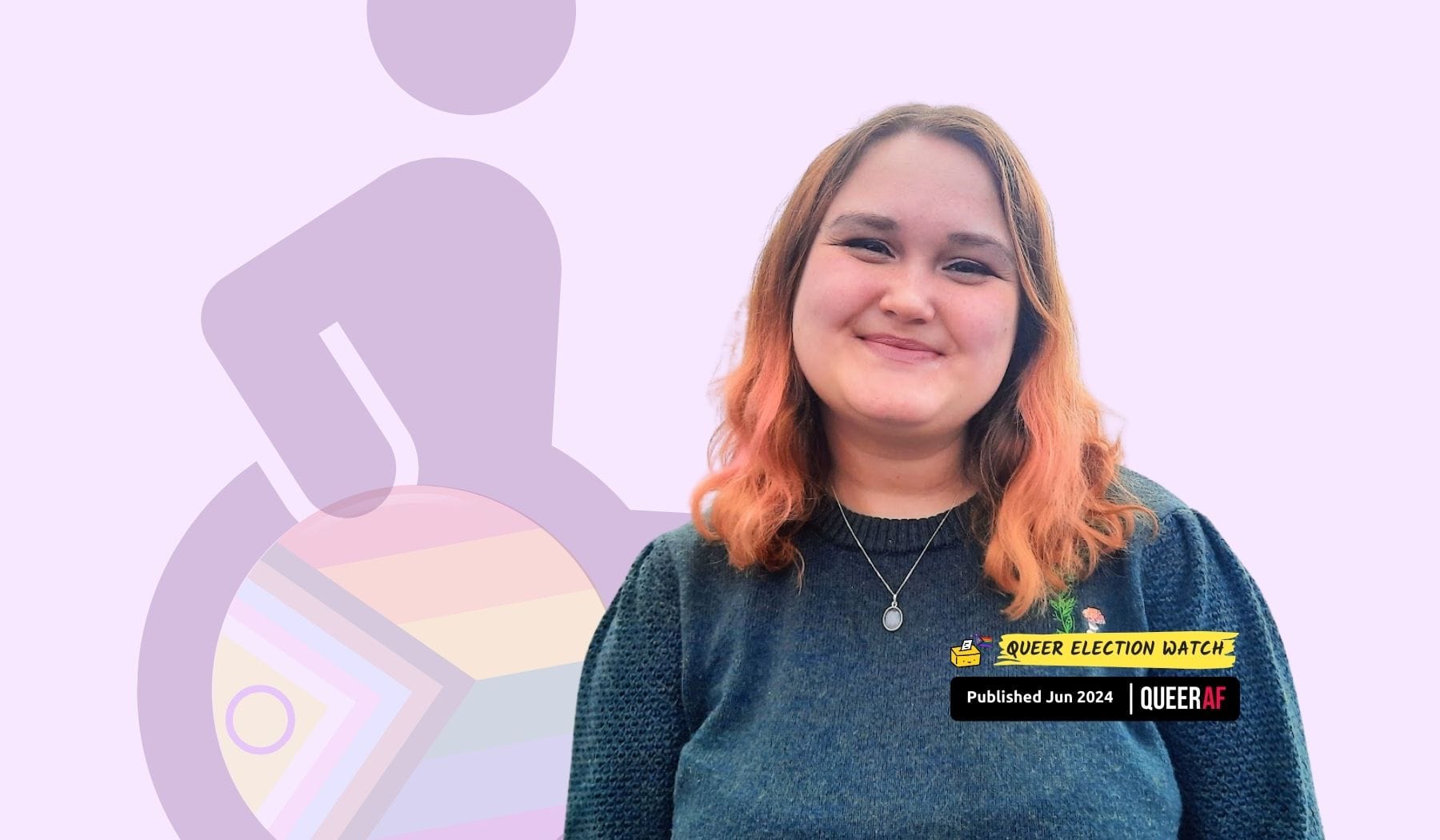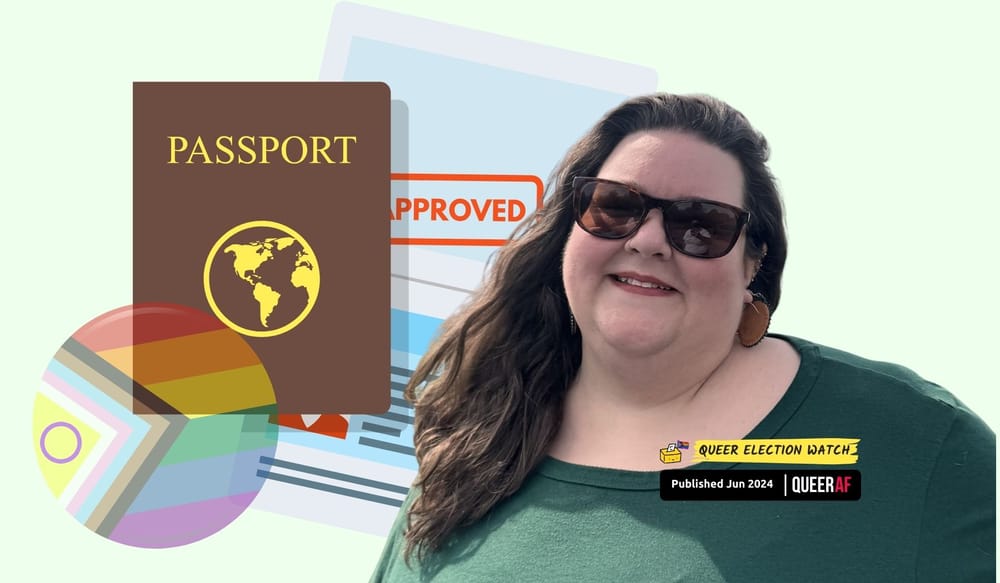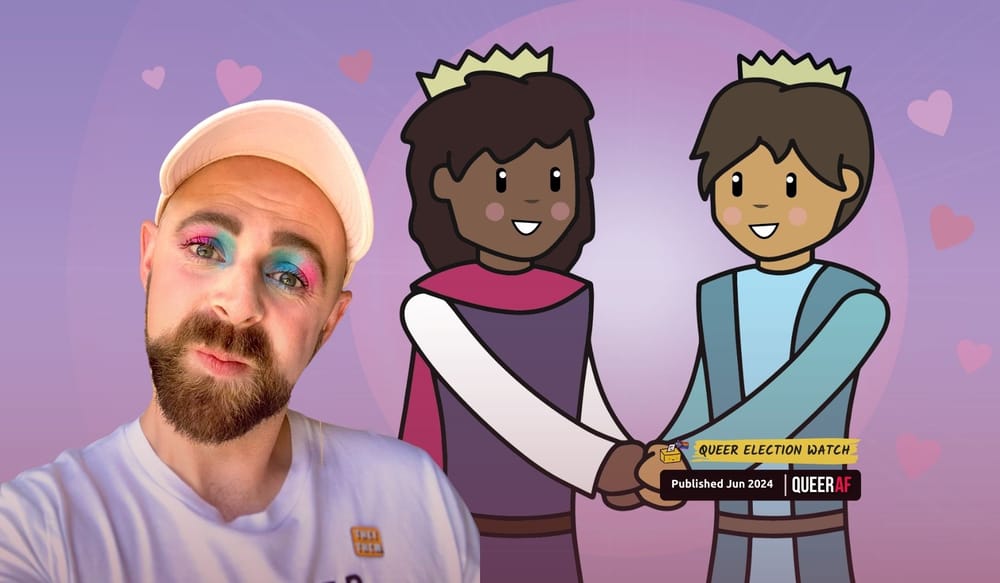
The UK needs change. In recent years, we have seen transphobic hate crimes rise, Section 28 styled policies re-introduced, the UK government accused of breaching disabled people's rights, and Rishi Sunak considering massive curbs on disability benefits. Meanwhile, the NHS is on its knees and we have all felt its effects. We need a government that will put queer, disabled rights on the agenda and fix our broken health-care system before it’s too late.
The intersection between queer and disabled people is clear, with queer people being more likely to experience mental health issues and more disabled people likely to be queer. And the healthcare crisis affects us all.
As a queer, disabled person myself, I have spent years on NHS waiting lists, experienced diagnosis letters being lost in the mail, and have struggled to access mental health services. I have seen queer, disabled people unable to receive the health care they need, with dire repercussions. So what should be done?
The NHS needs better funding and a more holistic approach in order to serve queer and disabled people properly.
Take gender clinics, where waiting times are astronomical. They need better funding so that trans people can be seen faster. A holistic approach would also take into account the individual needs of those visiting the gender clinic and how they have been affected by societal issues, such as the ban on puberty blockers for trans youth. Furthermore, a holistic approach would fix our political system that focuses on culture wars so that no more anti-trans legislation comes to pass, and trans people can thrive. We need solutions that address both the systemic roots of problems as well as addressing the consequences.
Will things finally change with the upcoming election? Some of the party manifestos promise to address healthcare issues.
Labour wants to modernise the NHS and make it more accessible and empowering for disabled people. They want to train thousands more GPs, guarantee face-to-face appointments for those who want them, and deliver an improved booking system to end the 8am scramble. They want to localise services by creating Community Pharmacist Prescribing Services and Neighbourhood Health Centres, the latter of which will bring a variety of specialists under one roof. They also want to improve the NHS app so that patients have more control managing their own medicine, appointments and health needs.
However, Labour does fall short when it comes to queer issues, with Keir Starmer saying he is not a fan of teachers talking about “gender ideology” in school, and the party consulting with writer and known gender critical campaigner J.K.Rowling on issues around gender instead of listening to professionals or the trans community.
Meanwhile, the Lib Dems talk a lot about mental health and introducing free medication to people with chronic illnesses. The Greens want to boost NHS staff pay and increase funding for mental health care. The SNP would introduce a bill that would protect the NHS from ever being privatised.
The Conservative manifesto claims they want to hire 92,000 more nurses and 28,000 more doctors and modernise GP practices. However, I am concerned by their focus on wanting to make disabled people work again. Equally, the implication in their manifesto is that mental health is not as serious as physical health. Their government has also been defined by anti-trans language and plans to redefine equality law to back up the statement that “biological sex is a reality.”
Some of the parties' suggestions for improving healthcare services are promising, but is it enough?
Disabled people are the world’s largest minority, with 1 in 6 of us being disabled. The UK 2021 census found over 1.3 million people identifying as LGBTQIA+. Yet, society is not set up for us.
Many of the current NHS issues, such as the struggle to get appointments or only being seen for small time slots, are indicative of a much larger problem. The issue is that our current healthcare system is not inclusive or holistic. For example, a huge portion of the population is not able to call the doctors at 8 a.m. because of work, health issues, or other priorities.
When I requested mental health support I was told I could not book an in-person appointment because the mental health team were not in the same practice as my GP. This is fundamentally backwards when a lot of people who struggle with mental health issues find it difficult to make phone calls. Also, they could not tell me the exact time I would be called, just a rough estimate, which is anxiety-inducing for working professionals or neurodivergent people who need a set routine.
The current system alienates whole groups of people and bars them from accessing services. The one-size-fits-all mentality does not work when it comes to healthcare. That is why we need healthcare that is better funded and gives power to individuals who know their needs best.
We need systemic change. Instead of a government focused on culture war rhetoric and hot topic policies, we need one that will sit down with disabled and queer communities and listen to what needs to happen, and then do it. We need the power to be returned to the people. This is how we can culturally shift the lives and futures of our country for the better.
Stay tuned to Queer Election Watch for more on the issues that matter to you. Check out the most recent policy check, on conversion practices, on DIVA and QueerAF now.

For media as diverse as we are.
"As someone that didn't go to University I often doubt myself as a capable communicator, especially as the first Director I worked for at the Guardian told me I'd never be eloquent enough if I didn't have a degree.
"But I can categorically say that the half hour editing and feedback chat with Jamie Wareham has built my confidence and given me far more valuable advice. What a profoundly beautiful thing QueerAF are doing within news & media."
That's what Ray Cooper, who also wrote in the Queer Election Watch series said about our approach and support with this week's Queer Gaze article.
That's the power of our work; that's the power of our unique approach to journalism; that's what over 300 QueerAF members help us do.
Are you the next one to help us develop a new generation of LGBTQIA+ journalists who can work in the media, to change the newsroom so together - we can change the country?











